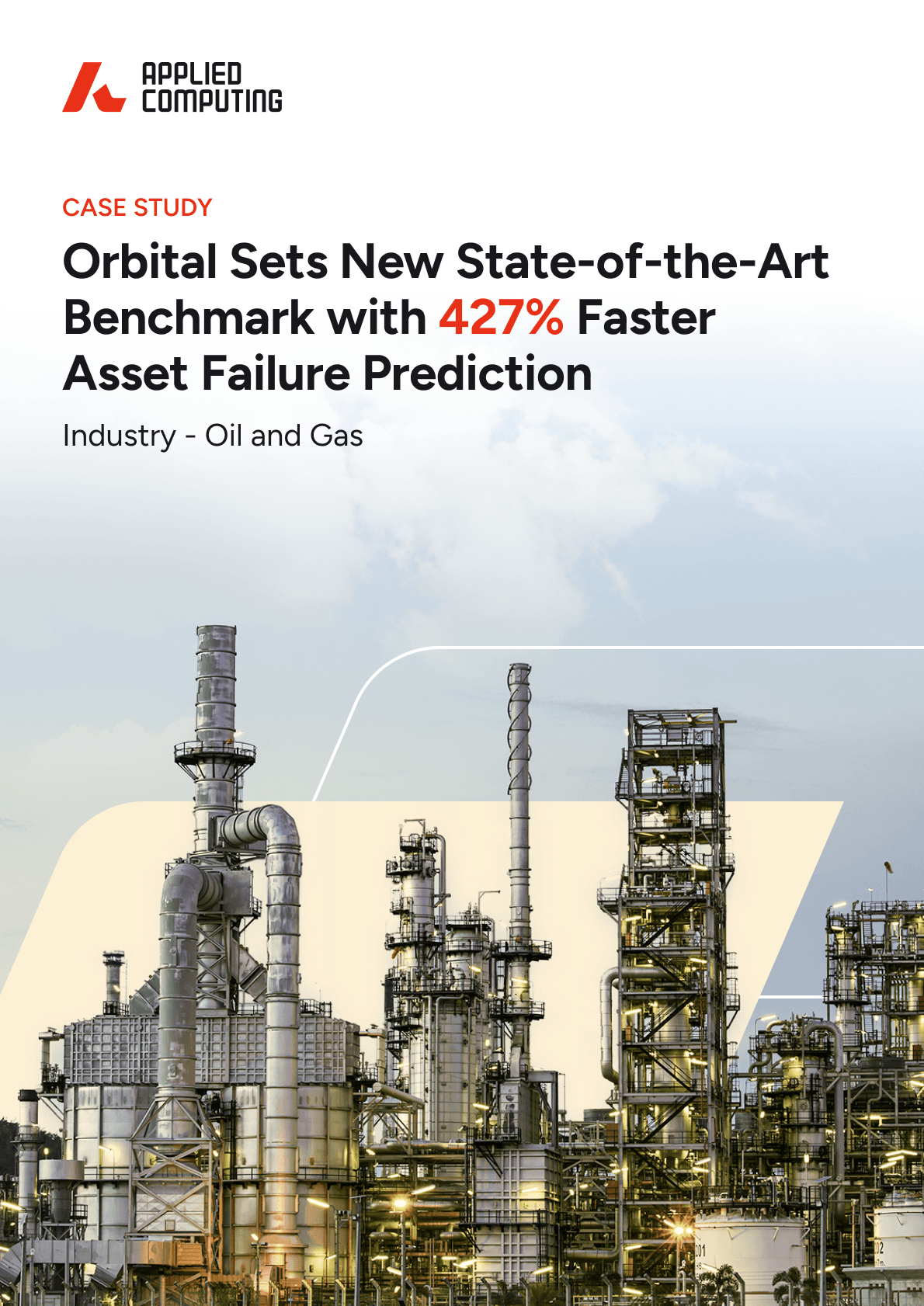CASe study
Orbital Sets New State-of-the-Art Benchmark with 427% Faster Asset Failure Prediction
12 Jun 2024
Goals
Demonstrate that a decentralised deep learning approach for asset failure prediction can be achieved while maintaining data privacy, security, and reduced operational costs.
Develop and evaluate this approach in a digital twin environment for pipeline failure prediction up to 96 hours before onset.
Benchmark and compare this approach to current machine learning methods deployed via Cloud in the industry on the following metrics: Model Accuracy, False Positive Prediction and Prediction performance
Process Background
Modern refinery optimisation relies heavily on advanced modelling techniques. However, failure identification remains a critical bottleneck due to inherent limitations in existing approaches. Traditional models often operate under steady-state assumptions, making them ill-suited for the dynamic, transient behaviours observed in real-world operations.
Despite the routine generation of ~2.5 exabytes of data, much of it remains underutilised, as prevailing methods lack the flexibility to handle continuous, unlabelled, high-frequency signals. Models typically require time-intensive step-testing for recalibration, sometimes taking months, further delaying fault detection. Their restricted operational scope means they perform well only within narrow, pre-defined regimes, leaving many process anomalies undetected or mischaracterised.
Results
%
Earlier predictions compared to other models
%
Overall accuracy
%
Higher accuracy at each day of prediction
